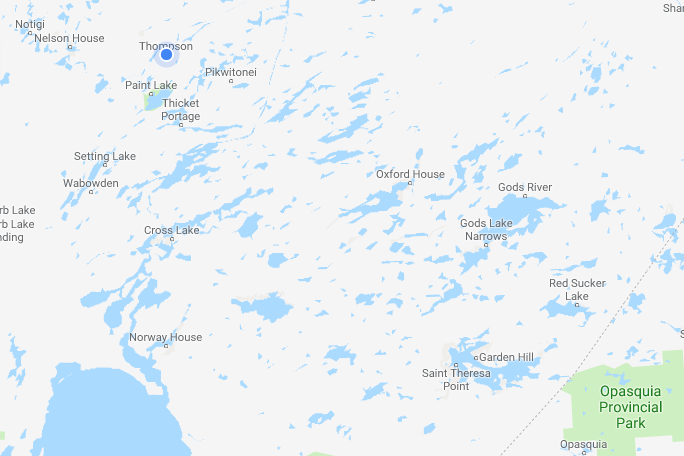Northern Manitoba’s Island Lake region needs a hospital and there should be a public inquiry into the treatment of First Nations people by the federal First Nations Inuit Health Branch, says Churchill-Keewatinook Aski NDP MP Niki Ashton.
Ashton, whose riding includes the fly-in Island Lake First Nations of Red Sucker Lake, St. Theresa Point, Wasagamack and Garden Hill, said the estimated 14,000 inhabitants of the region, close to the Manitoba-Ontario boundary, are not adequately served by the nursing stations and dialysis facility they have.
“There must be a hospital for a region this size,” she said at an Aug. 23 press conference in Ottawa. “My own home community of Thompson is smaller than the Island Lake region and we have a hospital but yet Island Lake, a growing region, doesn’t have this critical range of services.”
The newest nursing station in the region is the one in Red Sucker Lake First Nation, which cost $13.5 million and opened in June.
Ashton said nearly 500 people were transported out of St. Theresa Point alone by medevac flights in 2018 and that the dialysis unit in Garden Hill has a significant waiting list.
“Over 50 people from St. Theresa Point are essentially forced to live in Winnipeg to get this basic service so that they can continue to live,” Ashton said. “It is a reality that many non-Indigenous Canadians can’t imagine and a reality that would shock many non-Indigenous Canadians.”
About 50 residents of the region marched from Winnipeg’s Health Sciences Centre to the Manitoba legislature Aug. 21 to raise awareness of their plight and call for better access to health care in the north.
Roy Harper of St. Theresa Point told CBC that he’s has been living in a Winnipeg hotel for two years because treatment he needs for vasculitis is not available at his community’s nursing station.
“From the lack of services in communities to the cuts to non-insured health benefits to the way in which medical services treats patients, the system is broken,” said Ashton. “It is the result of cuts and neglect by the federal government, successive federal governments, but even to this day this federal government is continuing policies of colonization aimed at First Nations and nowhere is that more evident than when it comes to health care delivery. In Winnipeg people from the Island Lake region called out Prime Minister Trudeau for failing them and for even breaking a fundamental promise, a pretty basic promise, to visit the Island Lake region, a promise he made during the last election. My message to the prime minister is that his rhetoric on reconciliation means nothing given the reality on the ground. First Nations must have their health services funded as needed and there must also be a public inquiry into the treatment of First Nations people by medical services. Their health care right, like all of our rights, must be respected.”




